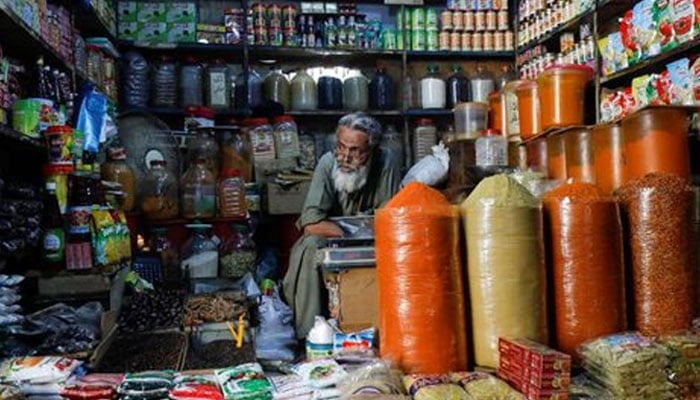Political stability: Key driver of economic growth
LAHORE: Stable governments have played a significant role in helping India and China achieve sustained economic growth, particularly following liberalization and reform policies. Bangladesh has also benefited from stability over the past decade, while Pakistan has struggled due to instability and inconsistent policies.
Official records show that over the last 50 years, the number of prime ministers in India, Pakistan, and Bangladesh, as well as the heads of state in China, has varied significantly due to differences in their political systems and governance models.
Political stability has had a positive economic impact in many countries. India’s economic growth has seen both stable and unstable periods. The 1991 liberalization under prime minister PV Narasimha Rao marked a significant shift towards a market-based economy, boosting long-term growth. The government of Narendra Modi has continued to emphasize economic reforms and infrastructure development. Since 1991, India’s economic policies have remained generally stable, focusing on liberalization, privatization, and globalization.
Bangladesh’s economy has experienced remarkable growth, particularly in the textile and manufacturing sectors. The long-term leadership of Sheikh Hasina since 2009 provided political stability and ensured consistent pro-business policies. During her tenure, Bangladesh focused on exports, infrastructure development and social programmes, which contributed to its economic success.
China’s one-party system has allowed for consistent long-term planning and policy implementation. Since Deng Xiaoping’s economic reforms in 1978, China has pursued market-oriented policies while maintaining state control over key sectors. Political stability has been a major factor behind China’s rapid economic rise, making it the world’s second-largest economy. The country’s stable leadership has enabled sustained growth in industrial output, infrastructure, and global integration.
In contrast, Pakistan’s economic progress has been hindered by political instability, military coups, and inconsistent economic policies. Frequent disruptions in democratic processes and the introduction of populist measures have undermined long-term development. The frequent changes in leadership, along with fluctuating economic policy approaches -- ranging from nationalization to privatization and populism -- have resulted in inconsistent economic outcomes. Political instability has also led to economic stagnation, characterized by high external debt, reliance on foreign aid, and a weak industrial base.
Since gaining independence in 1947, India has had 15 prime ministers. Over the past 50 years (since 1974), there have been nine prime ministers, including Indira Gandhi (1966–1977, 1980–1984) and Narendra Modi (2014–present).
Bangladesh, which became independent in 1971, has had 12 prime ministers over the past 50 years, from Sheikh Mujibur Rahman (1972–1975, as prime minister and then president) to Sheikh Hasina (1996–2001, 2009–2024). Most recently, Dr Muhammad Yunus assumed office in 2024.
China, governed by a one-party system under the Communist Party, has had stable leadership over the past 50 years. Notable leaders include Mao Zedong (1949–1976), Hua Guofeng (1976–1981), Deng Xiaoping (de facto leader, 1981–1989), Jiang Zemin (1989–2002), Hu Jintao (2002–2012), and Xi Jinping (2012–present).
In contrast Pakistan has seen greater political instability. In the last 50 years, it has had 18 prime ministers. These include Zulfikar Ali Bhutto (1973–1977), Muhammad Khan Junejo (1985–1988), Benazir Bhutto (1988–1990 and 1993–1996), Nawaz Sharif (1990–1993, 1997–1999, and 2013–2017), Zafarullah Khan Jamali (2002–2004), Shaukat Aziz (2004–2007), Yousaf Raza Gillani (2008–2012), Raja Pervez Ashraf (2012–2013), Imran Khan (2018–2022), Shehbaz Sharif (2022–2023) Anwaar-ul-Haq Kakar (2024–as caretaker), Shehbaz Sharif (2024-present). Pakistan’s history of coup and the frequent dismissal of elected governments have been significant contributors to its political instability.
Consistent economic policies and political stability have been key drivers of growth in India, China and Bangladesh, placing them among global leaders in economic development. In contrast, Pakistan’s inconsistent policies have resulted in weaker economic performance, leaving it among the nations with low growth rates.
-
 Panthers Vs Islanders: Dmitry Kulikov Returns From Injured Reserve As Schwindt Hits IR
Panthers Vs Islanders: Dmitry Kulikov Returns From Injured Reserve As Schwindt Hits IR -
 SAG-AFTRA Drops SAG Awards Name To Rebrand
SAG-AFTRA Drops SAG Awards Name To Rebrand -
 Next Full Moon: How To Watch The Total Lunar Eclipse On March 3
Next Full Moon: How To Watch The Total Lunar Eclipse On March 3 -
 Bhad Bhabie Shares Tender Moment With Daughter Amid Cancer Setback Hint
Bhad Bhabie Shares Tender Moment With Daughter Amid Cancer Setback Hint -
 Silver, Gold Prices Surge Amid Geopolitical Uncertainty After US-Israel Attack On Iran
Silver, Gold Prices Surge Amid Geopolitical Uncertainty After US-Israel Attack On Iran -
 Britain To Trial Social Media Ban For Hundreds Of Thousands Of Children Under-16
Britain To Trial Social Media Ban For Hundreds Of Thousands Of Children Under-16 -
 Prince Harry Should Face Same Fate As Shamed Andrew, Says Expert
Prince Harry Should Face Same Fate As Shamed Andrew, Says Expert -
 Oil Price Jumps, Stocks Fall After US And Israel Strike Iran
Oil Price Jumps, Stocks Fall After US And Israel Strike Iran -
 Demi Lovato Admits Younger Self 'would Never Believe' Her Life Now: 'It Can Get Better'
Demi Lovato Admits Younger Self 'would Never Believe' Her Life Now: 'It Can Get Better' -
 Gunman Identified After Texas Bar Shooting Leaves 3 Dead, 14 Injured
Gunman Identified After Texas Bar Shooting Leaves 3 Dead, 14 Injured -
 Meghan Markle Was Bad Mouthed By Royals On King Charles Coronation
Meghan Markle Was Bad Mouthed By Royals On King Charles Coronation -
 'Bridgerton' Season 4: Showrunner Talks About Violet's Steamy Romance
'Bridgerton' Season 4: Showrunner Talks About Violet's Steamy Romance -
 John Tesh Recalls ‘uncomfortable’ Backlash Over ’70s Romance With Oprah Winfrey
John Tesh Recalls ‘uncomfortable’ Backlash Over ’70s Romance With Oprah Winfrey -
 Meghan Markle, Prince Harry Problem Was Not ‘work’ During Time With Royals
Meghan Markle, Prince Harry Problem Was Not ‘work’ During Time With Royals -
 Meta Strikes Multi-billion-dollar AI Chip Deal With Google: Will The New Collaboration Pay Off?
Meta Strikes Multi-billion-dollar AI Chip Deal With Google: Will The New Collaboration Pay Off? -
 Gracie Abrams Breaks Silence After Losing 2026 BRIT Award
Gracie Abrams Breaks Silence After Losing 2026 BRIT Award




